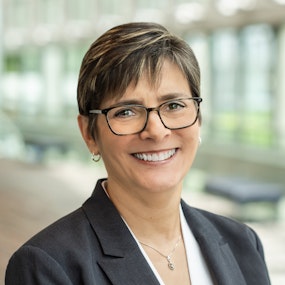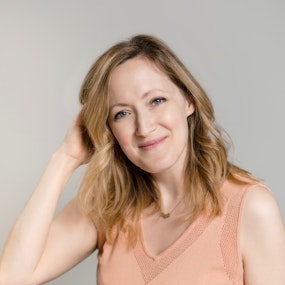JANSON SILVERS:
This is the award-winning Public Health Review Morning Edition for Monday, August 28, 2023. I'm Janson Silvers. Now, today's news from the Association of State and Territorial Health Officials.
DIANE HALL:
Establishing this office will allow us to build on the work we've been doing in a more systematic and strategic way, allowing us to provide more focus to action, but also to provide leadership, and elevate rural public health.
SILVERS:
The CDC is keeping rural health a priority by launching a new office. Diane Hall is the Director of the CDC's new Office of Rural Health.
HALL:
One of our key tasks is to lead development of CDC;s strategic plan for rural health. But one of the other priorities is to continue building on the work we've been doing: working across the agency to help CDC programs incorporate rurality into the work that they do. And from there, continue staffing and continuing to integrate programming across the agency.
SILVERS:
Hall says every rural community is not the same and the new office will be able to dive into those differences; something she says hasn't always been the case.
HALL:
One of the things that I'm most excited about is being able to look at diversity within rural communities. Typically, the narrative has been where we'll compare rural with non-rural areas. And in general, the story there is that rural isn't doing as well. But if you look within rural communities, this is where we start to see differences by region, by state, where we start to see race and ethnicity differences.
SILVERS:
Of course, none of this will be possible without the help of information from the ground.
HALL:
The way we hope to interact with jurisdictions is to hear from them and hear from our partners about any of the rural challenges that they're seeing, better understand the rural context in their state, but also hear about any of the rural successes. We think that understanding will help ensure that the work we're doing in the Office of Rural Health is much more relevant and able to be applied.
SILVERS:
You can check the show notes for more information on the CDC's Office of Rural Health.
Childhood mental health plays a large role in adult mental health, and as the cycle continues, affects society. Claire Rudolph, who is with the New York State Department of Health, and an ASTHO consultant, says we talk about the negative childhood experiences and their impacts, but positive experiences can also leave an impression.
CLAIRE RUDOLPH:
Children whose mothers report positive mental health are less likely to develop mental health and behavioral disorders later in life. So, this really highlights the importance of interventions that support positive caregiver mental health.
SILVERS:
Mental health issues continue to rise across all ages, and children aren't immune.
RUDOLPH:
The increase in early childhood mental health issues is a pressing concern that will require a coordinated and intentional response from all levels of government. It's critical to support positive mental health in early childhood because mental health status, even in very young children, has an impact on their physical and mental health outcomes later in life.
SILVERS:
States across the country, including Rudolph's own New York, are stepping up
RUDOLPH:
In 2019, multiple state agencies in New York, including the New York State Department of Health, teamed up to create an entirely new set of behavioral health services for eligible children ages zero to 21. And the focus of these services is on prevention and early intervention.
SILVERS:
Also today, ASTHO's CEO Mike Fraser is quoted in a Governing.com article about the growing 'infodemic' in public health. In the article, Fraser calls misinformation a quote, "asymmetrical threat." You can read the article using the link in the show notes.
Finally, ASTHO is hosting a webinar to keep you up-to-date on the latest trends in adolescent sexual and reproductive health. O'Keyla Cooper has more.
O'KEYLA COOPER:
Join the ASTHO Contraception Access Learning Communities webinar to explore current trends in adolescent sexual and reproductive health. Gain insights from leading organizations on effective ways to involve adolescents in their SRH care and education, while learning from state examples where youth voices have been integrated. Register now using the link in the show notes.
SILVERS:
And if you have a minute, please take the time to give us a review. We'd like to know what you think.
That'll do it for today's newscast. We're back tomorrow morning with more ASTHO news and information. I'm Janson Silvers. You're listening to the award-winning Public Health Review Morning Edition. Have a great day.






